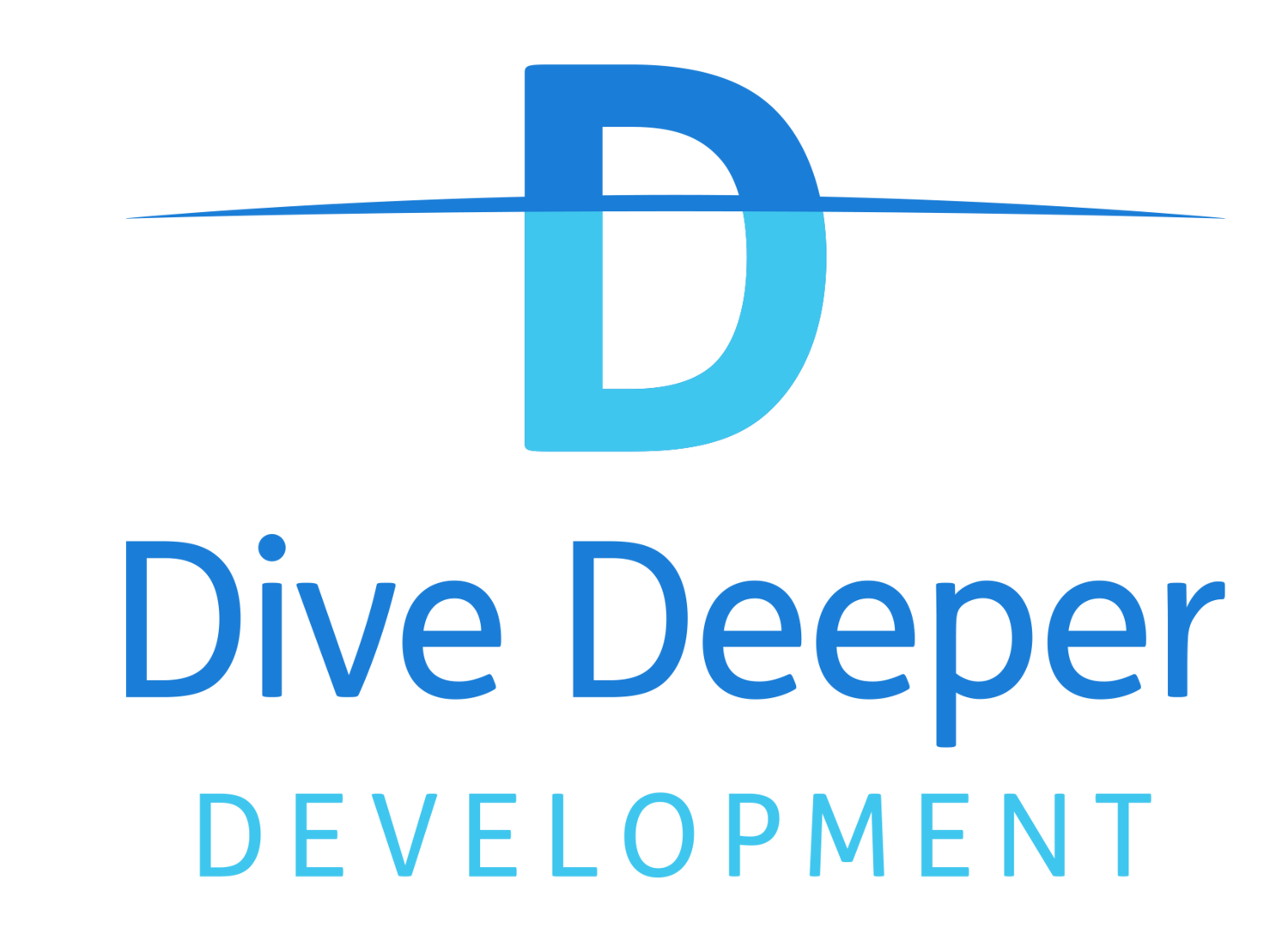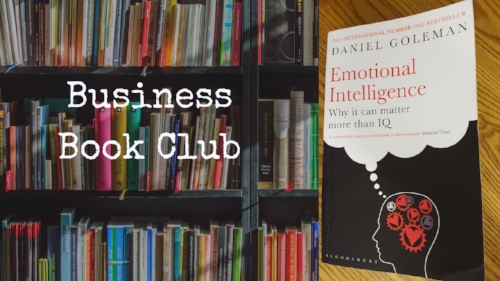Business Book Club: Emotional Intelligence
I've set myself a goal to read one self-development book per month. To make sure I really reflect on what I'm reading I'm going to extract the wisdom from the best business and personal development books and share it with you.
This month I’ve been reading Emotional Intelligence: Why it can matter more than IQ by Daniel Goleman
This book has been sat unread in my office for years. Literally years. I can’t even remember how many. All I can say is that the topic was fairly new when I was given it and I guess it wasn’t top of my reading list. Now that I’ve read it I’m wondering how I’ve lived my life without the information contained within it. Emotional intelligence is such a ubiquitous term these days and I’m regularly asked to train people on the subject. So what is emotional intelligence really, is it as important as IQ and can it be learnt?
The book:
First published in 1995, this book was on The New York Times Best Seller list for a year-and-a-half, a best-seller in many countries, and is in print worldwide in 40 languages. Daniel Goleman argues that our view of human intelligence is far too narrow and that our emotions play a major role in thought, decision making and individual success.
The book has five sections:
- The emotional brain-the purpose of emotions and emotional hijacking
- The nature of emotional intelligence-the 5 domains of emotional intelligence.
- Emotional intelligence applied-how EI can be applied to education, personal life and the workplace
- Windows of opportunity-trauma, emotional relearning and why temperament is not destiny
- Emotional literacy
Below, I share some of the key learning points that resonated with me most:
EI or IQ?
Traditionally your IQ was thought to be the full story of how intelligent you were. Goleman, however, believes that IQ contributes to only 20% of our success in life – the remaining 80% is the result of emotional intelligence, which includes factors such as self-motivating ability, persistence and impulse control.
We are emotional beings first and foremost
Most people like to think that they are sensible, rational human beings but it’s long been known that us humans are primarily driven by our emotions. Before the logic and reason afforded to us by our neocortex, we were primal creatures using instincts and emotions about what we experienced to help us navigate our way through the world. Over millions of years, the brain grew from the bottom up, with higher centres developing as elaborations of the more ancient parts. This process of brain development is still roughly traced by the development of brains in embryos today.
Before we had grey matter, like almost all animals, we started with the brain stem surrounding the top of the spinal cord. This part of the brain wasn’t capable of thinking or learning, it’s function was to regulate basic life functions like breathing. From this primitive version of the brain emerged the emotional centres. Starting with the olfactory lobe, the cells that take in smells and analyse them for our survival, detecting predators, suitable food sources, poisons etc. From here the ancient centres for emotions evolved and some millions of years later we developed our limbic system, adding emotions to the brain’s repertoire. It also brought with it two new capabilities: learning and memory. This allowed us to adapt to the world around us. For the first time, if a food made us sick we could avoid it again in future. We could remember experiences from the past and use them to make better decisions about what lay ahead. About 100 million years ago a new part of the brain emerged. Heaped on top of the thin two-layered cortex (the regions that plan and comprehend what is sensed) were new layers of cells forming the neocortex offering a new intellectual edge. Not only did this allow us to analyse our experience of the world better and coordinate and plan, it also added thinking to how we feel about things, or to put it another way, the ability to have feelings about ideas, art, symbols and imaginings.
The fact that the thinking brain grew from the emotional reveals much about the relationship between thought and feeling. We are creatures of emotion first and foremost, driven by an ancient system deigned to help us move safely through the world. Our ability to consciously process information rationally only kicks on once the emotional centres have done their job first.
We decide emotionally and tend to justify rationally afterwards.
You have fewer emotions than you think and they all serve a purpose.
We have so many words for emotions, most of us don’t realise we actually only have about 5 or 6 at most (American Psychologist Paul Eckman believes we have 6 basic emotions, according to research from Glasgow University it’s only 4). Broadly the basic emotions might be described as:
- Fear
- Happiness
- Sadness
- Love
- Surprise/disgust
- Anger
When I was reading about what happens in the brain when we experience these emotions what struck me was the simple biological purpose of these emotions. We think of emotions as being incredibly complex but when you break them down they are simply, in Goleman's words, impulses to action. That’s it, nothing more. Anger causes blood to flow to the hands making it easier to grab a weapon or strike an enemy. Sadness causes a drop in energy and helps us internalise and adjust to loss. Happiness increases our energy and suppresses troubling thoughts, giving the body a mental rest and also additional drive towards a reward or goal. And so on. Emotions have a purpose, they have a very important biological and neurological role in helping us move through the world. They are not there to be managed but to be understood and acted upon.
Emotional hijacking
Ever just get so annoyed you feel like you acted out without thinking? That’s pretty much what you did, you acted with consciously thinking.
It used to be thought that our decision making involved taking in information and processing it rationally through our neocortex-a bit like this: The sensory organs transmit signals to the thalamus, and from there to the neocortex (the logical bit) where these signals are then sorted for meanings. From the neocortex, signals go the limbic system (the emotional bit) and from there, an appropriate and measured response is given from the brain to the body. This is how the brain works much of the time.
However, neurologist Joseph LeDoux discovered a small bundle of neurons leading from the thalamus directly to the amygdala-like a Cluedo style secret passage, creating a shortcut. This means that the amygdala can receive sensory inputs and spur us to action while our slower, more accurate, neocortex creates a fully formed plan. This is how people jump into a river to save a child without thinking or why we snap at people when we are in an emotional state. In fact, some emotional responses or memories can be formed without the neocortex at all. The amygdala can store memories and automated responses that we enact without realising because they trigger this shortcut. Within a few milliseconds of perceiving something we not only unconsciously comprehend what it is but also whether or not we like it. In this respect, our emotions have a ‘mind of their own’.
“In a very real sense, we have two minds, one that thinks and one that feels.”
So what is Emotional Intelligence?
According to Goleman emotional intelligence comes down to two things:
- Understanding yourself, your goals, intentions, responses and behaviour.
- Understanding others and their feelings.
The good news is that it can be learned and improved upon with practice. Goleman outlined 5 domains of emotional intelligence, so if you want to enhance yours here is what you need to work on:
1. Knowing your emotions:
Or self-awareness. This is the ability to recognise a sensation or emotion when it occurs. Self-awareness is the key to emotional intelligence. When we cannot interpret our feelings, we are at their mercy.
2. Managing your own emotions:
This is our ability to manage our reactions to emotions and choose an appropriate response
3. Motivating yourself:
Self-motivation means directing your emotions at the service of a goal or objective. It’s the ability to pursue goals with energy and persistence, even in the face of failure. People who have this ability tend to be much more productive and effective in their day-to-day lives.
4. Empathy:
Empathy is our ability to feel what others feel, to understand what others have to say and to read subtle social signals about what others need or want.
5. Managing relationships:
The ability to recognise and inspire emotions in others. People who excel at these skills perform well in all areas of life, especially those which involve working with other people.
Conclusion
What struck me most about this book was the sheer importance of emotional literacy. As I started to think about all the areas of life where Goleman's 5 domains apply I couldn’t think of a single situation where good emotional intelligence wasn’t important. I can think of many situations where you need a good EQ but not a good IQ, but not one where you need a good IQ without the need for a good EQ. This also got me thinking about emotional illiteracy and the huge disadvantage many people have in life if this is not taught at an early age. It’s something Goleman writes passionately about towards the end of his book where he explores how EI can be applied to in life, education and work and for the benefit of society as a whole.
The book may have been written in 1995 but given our long history of an education system and work environments where IQ has been held above all else, his ideas still feel fresh as fresh today as they were back then. Essential reading for us all.
What should I read next?
Have you read the book? What did you think? What shall I read next?
If you have any recommendations let me know below or via Twitter, Facebook or LinkedIn
Want regular personal development tips and reminders? Sign up for the monthly newsletter and I'll help you to keep focused.

